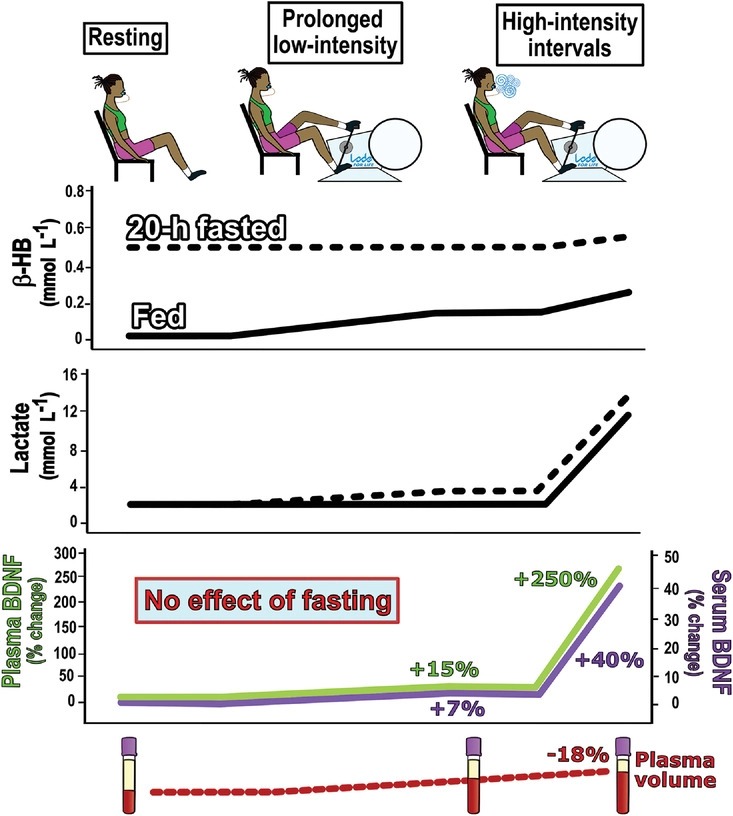Published on
Updated
Reading 3 mins.
in collaboration with
Dr Christophe de Jaeger (Longevity and geriatrics)
The leading cause of dementia, Alzheimer’s disease causes progressive cerebral cognitive decline. What if intense sports activity could help prevent it? This is the conclusion of a study carried out by a team of New Zealand researchers from the University of Otago. The opinion of Dr Christophe de Jaeger, physiologist and member of the Doctissimo expert committee.
Sport is good for health, it is well known. Could it also be a factor in the prevention of neurodegenerative disorders, such as Alzheimer’s or Parkinson’s disease? New Zealand researchers drew these conclusions from a small study carried out on a dozen volunteers.
The role of a particular protein, BDNF
In this study, researchers are looking at the impact of a particular protein called brain-derived neurotrophic factor, or BDNF, which is known to promote neuroplasticity and survival of neurons.
It also allows, according to certain animal models, the formation and storage of memories, the improvement of learning and cognitive performance. The quantities of this protein can be increased by sports activity or intermittent fasting.
A cohort of six men and six women
Based on this knowledge of this protein, the authors of this work therefore recruited 12 physically active participants: six men, six women aged 18 to 56. To differentiate the influence of fasting and exercise on BDNF production, the researchers compared the following factors to study isolated and interactive effects:
- Activity 1: fast for 20 hours;
- Activity 2: do a light exercise session (90 minutes of low-intensity cycling);
- Activity 3: Do a high-intensity exercise session (six minutes of vigorous cycling);
- Activity 4: fasting and exercise combined.

Short, intense exercise increases BDNF levels
They found that a brief but vigorous exercise of six minutes was the most effective way to increase BDNF compared to a day of fasting with or without a long session of light exercise.
Indeed, during this type of effort, the levels of the BDNF protein increased four to five times more compared to fasting or prolonged activity. “The cause of these differences is not yet known and further research is needed to understand the mechanisms involved.“indicate the researchers who, however, advance a hypothesis.
“The observed increase in BDNF during exercise could be due to the increase in the number of platelets which store large amounts of it. Indeed, sports activity influences the number of these blood cells, which increase by 20% at this time.
Study fasting and sports activity
The lead author of this work, Travis Gibbons of the University of Otago, New Zealand adds: “BDNF has shown great promise in animal models, but pharmaceutical interventions have so far failed to safely harness the protective power of BDNF in humans. We saw the need to explore non-pharmacological approaches that can preserve brain capacity that humans can use to naturally increase BDNF to aid in healthy aging. We are now investigating how fasting for longer durations, for example up to three days, influences BDNF. We are curious whether intensive exercise at the start of a fast accelerates the beneficial effects of fasting. Fasting and exercise are rarely studied together. We believe that fasting and exercise can be used together to optimize BDNF production in the human brain“
The opinion of Dr Christophe de Jaeger, physiologist and member of the Doctissimo expert committee
“This study is of real physiological interest because it shows that high-intensity physical activity can increase levels of BDNF – which is a neuroprotectant – in the blood, in response to induced stress. On the other hand, it is a strategy that is difficult or even impossible to apply in subjects with Alzheimer’s disease, because their state of health will not allow them to reach such high levels of physical activity. concludes the specialist.
